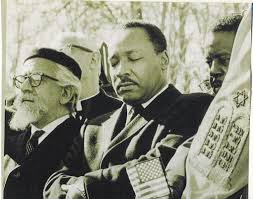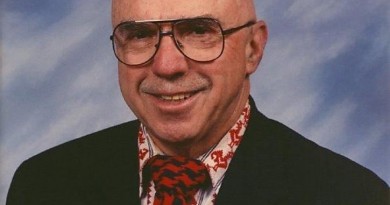A Short Story of a Long Life
 A Short Story of a Long Life is the title of my late friend Emerich Salzberger Stoessl’s z"l autobiography.
A Short Story of a Long Life is the title of my late friend Emerich Salzberger Stoessl’s z"l autobiography.
Emerich was a truly remarkable person. Born in Austria, He learned to fly in Prague and he studied aeronautical engineering in Italy at a very young age. When WWII broke out, he joined the RAF and served as a fighter pilot, and later test pilot at England’s legendary Farnborough, where at the end of the war he was the senior pilot and director of flying–and one of the first people (if not the first) to fly a jet aircraft in England, a captured Messerschmit 262.
During the war he was sent on a secret mission to Czechoslovakia, which failed. He managed to get a job as navigator for a ship heading down the Danube toward Palestine. The ship wrecked, and was captured by the German’s allies, the Italians. He was put in a concentration camp in Italy, managed to escape and get back to England, and was sent to North Africa as commander of a squadron of fighter planes.
After the war he took a posting in Palestine where he headed air traffic control for the entire Middle East. His parents had moved to Mexico, and he ended up joining them there. He continued to help the infant Israel, identifying and smuggling surplus WWII planes from America to Israel. He was a block away, and was knocked out of his chair when Jewish terrorists blew up the King David Hotel.
I met Emerich around 1980, when I was working for Geometrics. Emerich had a photogrammetry (aerial photography & mapping) company based in Mexico City. My boss, Sheldon Breiner, suggested I meet with Emerich as they had worked together before. Emerich introduced me to a man who became our sales agent for Mexico. I remember the first time I met Emerich, we sat in his office and he offered me a cigar. He seemed pleased when I accepted; he said "I can’t stand a viceless Jew!" Having at least one vice made one more human.
Emerich and I hit it off, I suppose because we were both part of the fraternity of Jewish pilots. All Jews feel a certain sense of connection with each other as a large extended family; pilots also feel a certain camaraderie that comes with a shared understanding of how amazing it is to fly an airplane. So fellow Jewish pilots makes for a "two-fer."
After our first meeting we would get together whenever I visited Mexico or when he visited the San Francisco Bay Area; we went flying together a few times in the Bay Area. Emerich mapped many of Mexico’s airports and railway lines. At his recommendation we tried a visit to Zihuatanejo, and fell in love with the place. A beautiful horseshoe-shaped bay on the coast about 100 miles north of Acapulco. In the years that followed I often would go to Zihua for a few days and then head to Mexico City for business.
One time when a few of us were in Mexico on a combination of business and pleasure, on the leg from Zihuatanejo to Mexico City, the engine started running rough at 15,000 feet over Cuernavaca. When I landed I asked Emerich if he could recommend a mechanic. He told me to take it to these guys across the field…with the caveat, "they’re the best in Mexico, but not very good. I take my planes to Brownsville for maintenance." Not the most encouraging recommendation, but somehow that recommendation captured something of Emerich’s attitude and way of dealing with adversity — a sort of resignation and acceptance of the limits of a particular time and place.
Between Emerich and a few other friends I have who were his contemporaries, I feel a connection to an amazing period of history. The events of WWII — including the Holocaust and immediately after the creation of the State of Israel — were so formative for the world we live in today. I envy the opportunities Emerich and his compatriots had to be a part of the creation of a new world and a new country. From today, we look back on that era and it seems like a time when things were more clear. There were good guys and bad guys, and when the war was over the bad guys were done. Today the war on terrorism–or more accurately, the war against Islamic Fundamentalism–seems bogged down with an enemy that grows two new heads every time you cut one off. With the way they hide among civilians, our ethics are challenged every time we try and stop them because it usually means killing innocent civilians along with the terrorists. I suppose the clarity we project on the world 60 years ago is really just an artifact of hindsight — they had their own moral quandaries, like dropping the bomb on Hiroshima and Nagasaki, or the bombing of Dresden.
Emerich was a gentleman of the old school — I bet he really charmed the ladies when he was young. Heck, he still charmed them when he was old! He had a dry sense of humor, and he was a real mensch. One time he offered to give me his company because he wanted to retire, he hadn’t been able to sell it, and he didn’t want to simply shut the doors and liquidate the assets because he wanted to make sure his employees, who had been loyal to him for years, were taken care of. I’m adventurous, but I wasn’t quite adventurous enough to take over a company that was financially troubled in a business I knew nothing about in a country where I could hardly speak the language. Then again, who knows, that may be what I’ll be facing in Israel next year! Emerich eventually did give the company away.
In March of this past year the Rabbinical Assembly had its annual convention in Mexico, so of course I looked up Emerich, and was greatly saddened to learn he was gravely ill. I’m very glad we had a chance to visit before he passed away. One of my great disappointments as a rabbi is that I wasn’t able to help Emerich find God. He really wanted to believe in the God of his ancestors, but had trouble getting there. I recommended some books, we talked, we corresponded, but he just was not able to find faith in God. That experience strengthens me in my resolve to finish writing the book I’m working on, which is all about how to develop faith in God.
When I was there I said the vidui for him, which is a special prayer recited by people with a terminal illness. It was one of the most difficult things I’ve done since becoming a rabbi; I’ve said that prayer for any number of people, but this was the first time I did it for a friend. I think it helped him feel a little more at peace.
Of course, I see the presence of God just in the fact that after not having been to Mexico for many years, I was able to see Emerich again just a few months before he passed away. Could it have been a coincidence? Sure…but maybe it wasn’t.
Even though I didn’t speak to Emerich a lot in the last few years, the world feels just a little colder with his passing. I’ll miss our visits, usually over a meal. If you want to learn more about his life, by clicking on the title of the book at the beginning of this post you can buy a copy at Amazon.com.
Emerich’s memory is a blessing to all who knew him.
Technorati Tags: biography, Israel, Mexico, aviation



Barry
I was very touched by this piece and appreciated reading about your relationship with Emerich. Thanks so much. I will share it with my mom tonight.
Giselle
I knew Emerich between 1974 and 1977, in his role as local agent for Plessey Radar. He was truly charismatic and extremely well connected in the country. Like many such larger than life characters he could be overpowering but his staff at Aerotecnica, his photogrammetric surveying business would follow him anywhere. To me, he was always very gracious and mentored me in the ways of business in Mexico.
Hello, my name is Yuruen Lerma and my family was close to Emerich during the 50s. I am looking for this book because Im currently doing my PhD on jewish mexican people and jewish people who lived in Mexico and fought during WWII but apparently this book is now very hard to find. I was wondering if you could tell me where you got it since it is no longer available in Amazon. Thank you very much in advance and I hope you receive my message.
Saludos
Yuruen